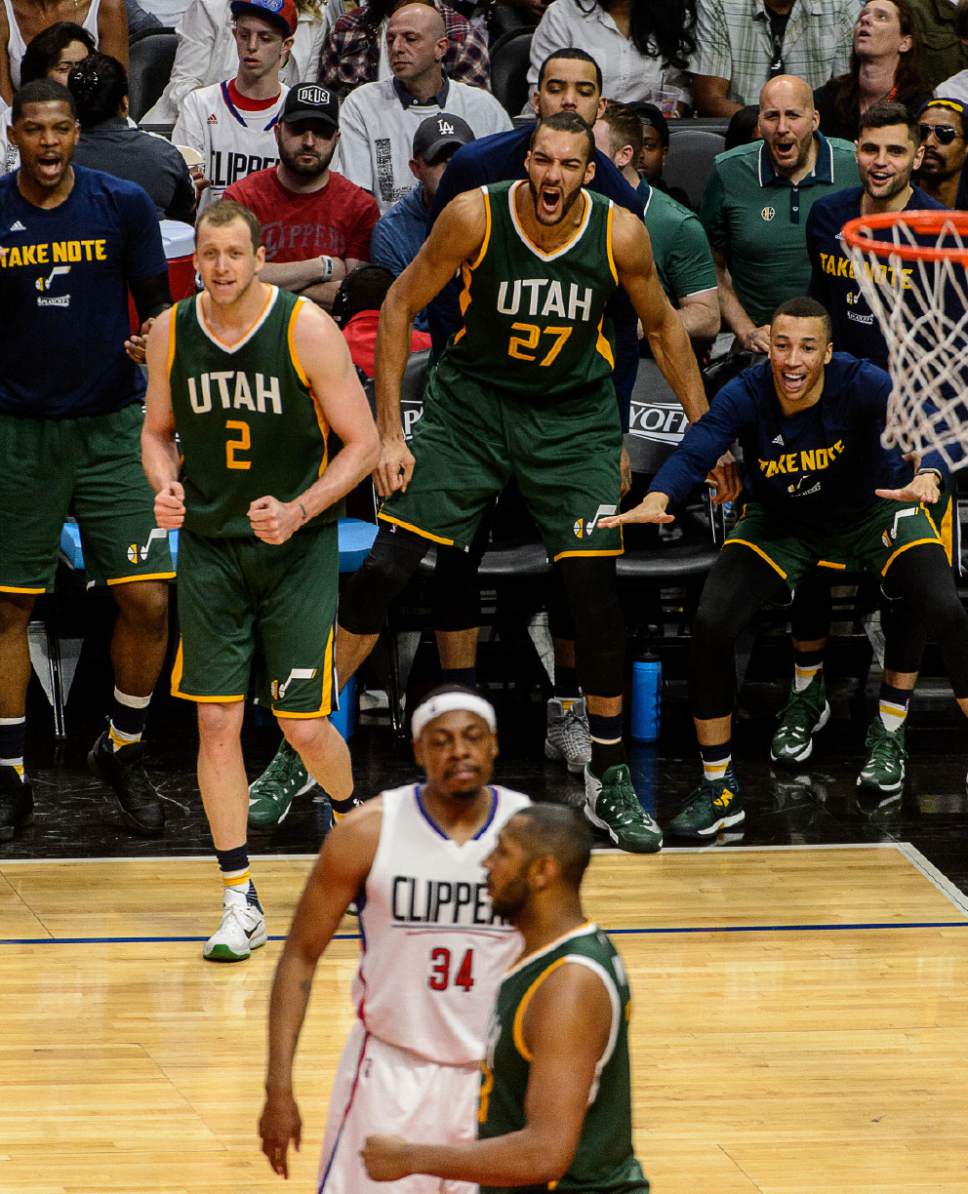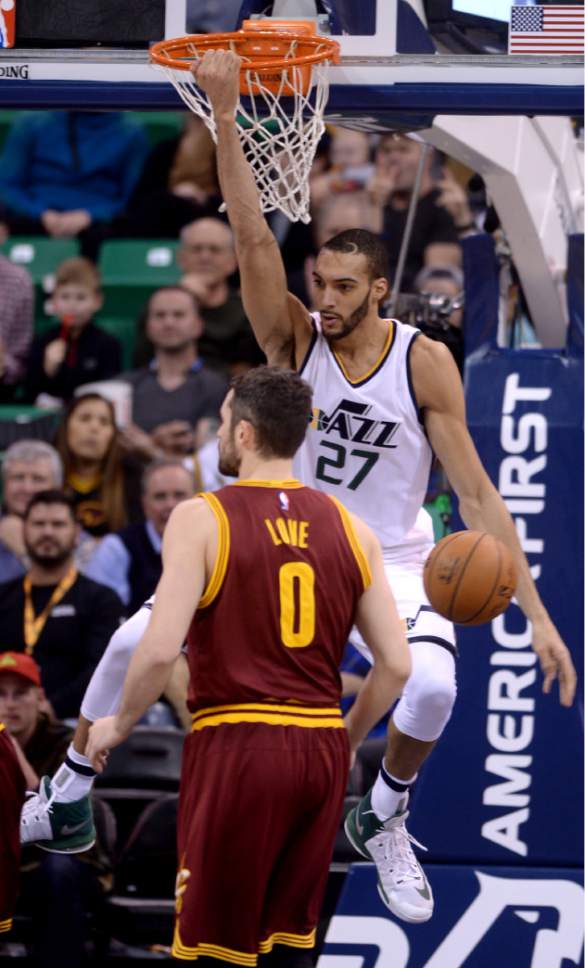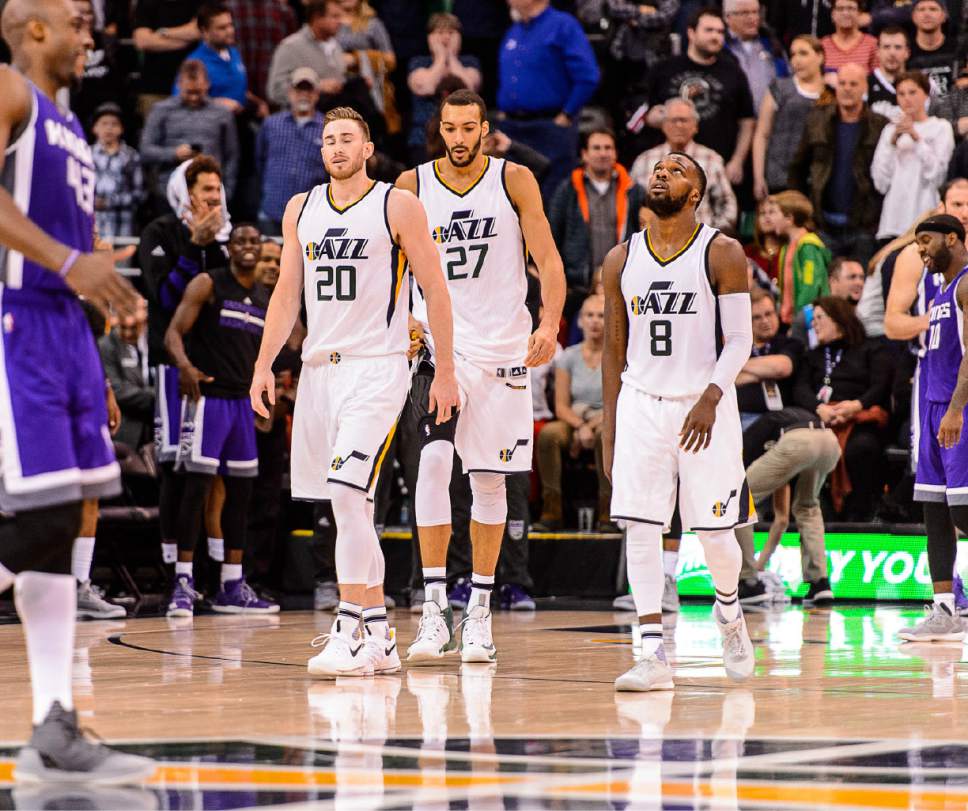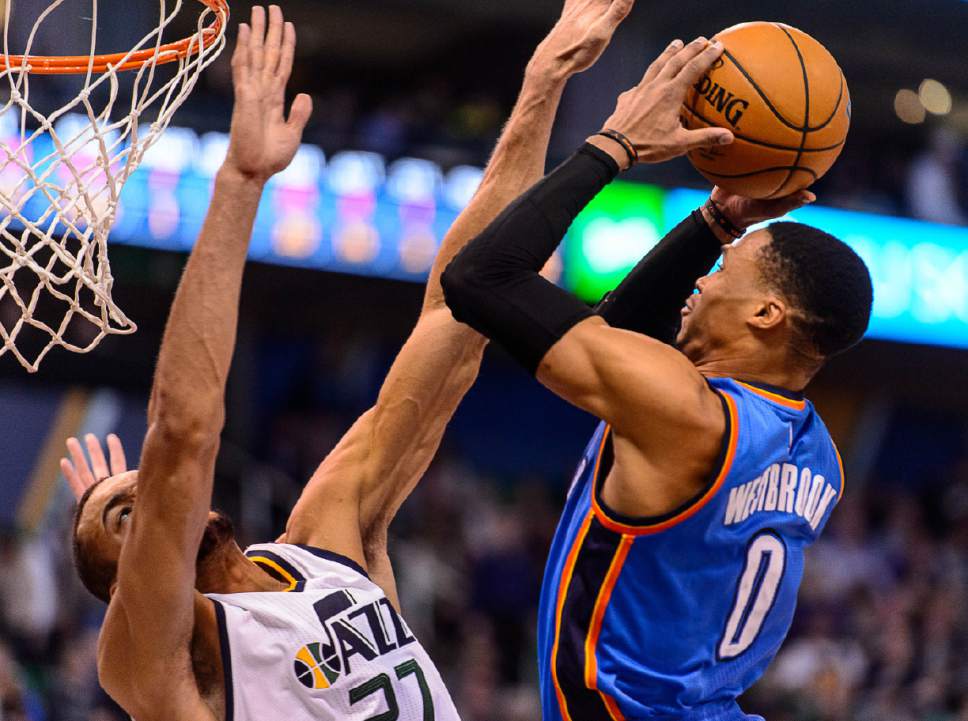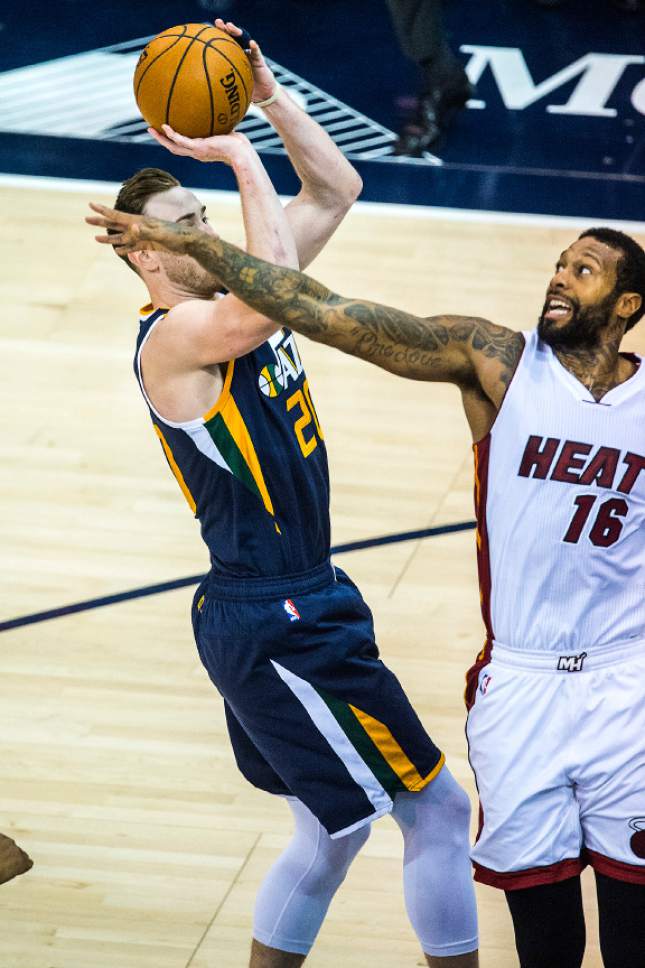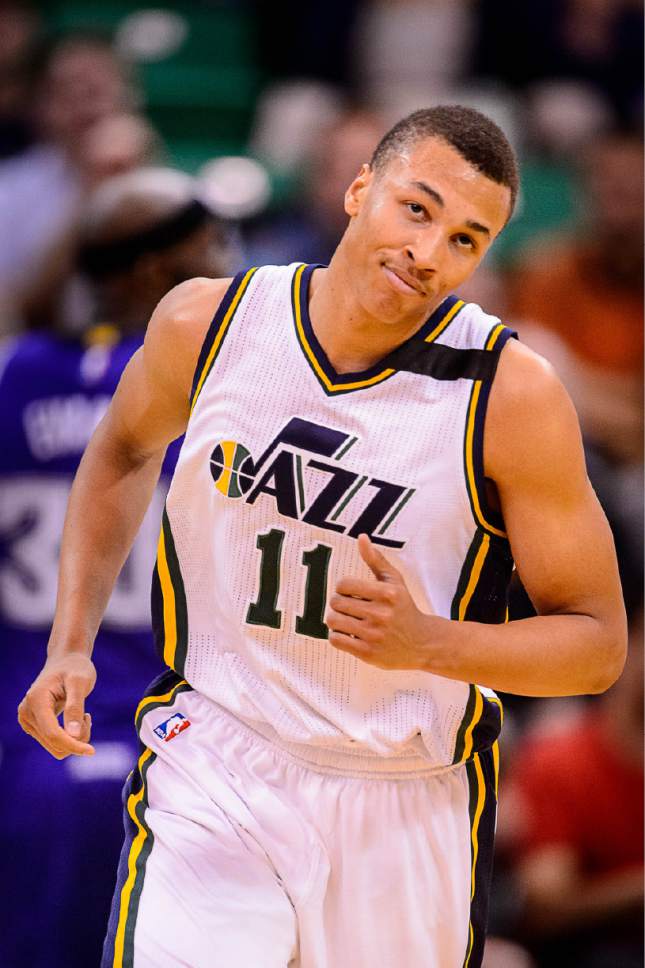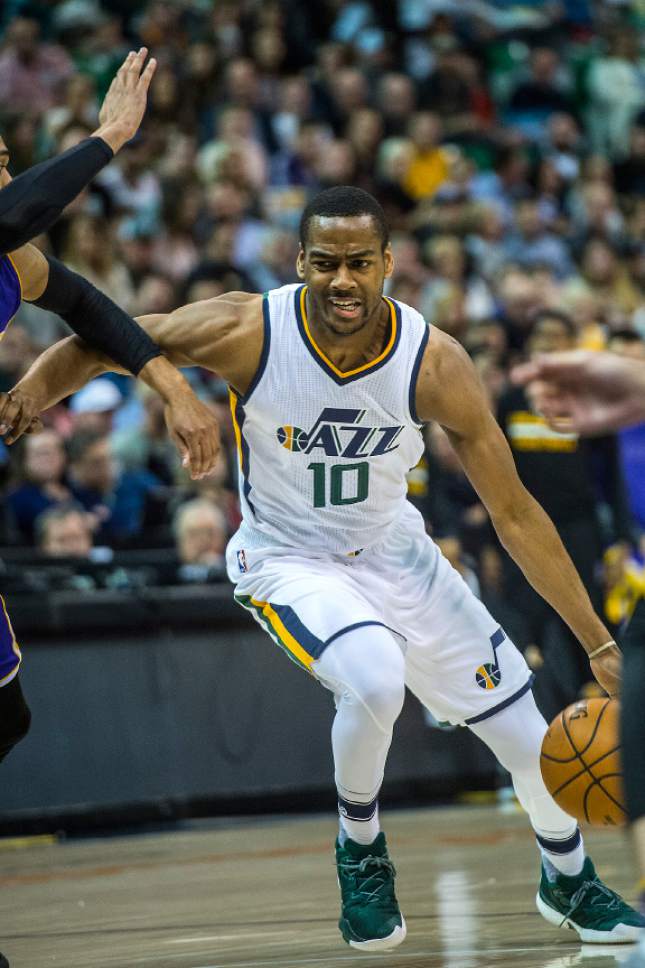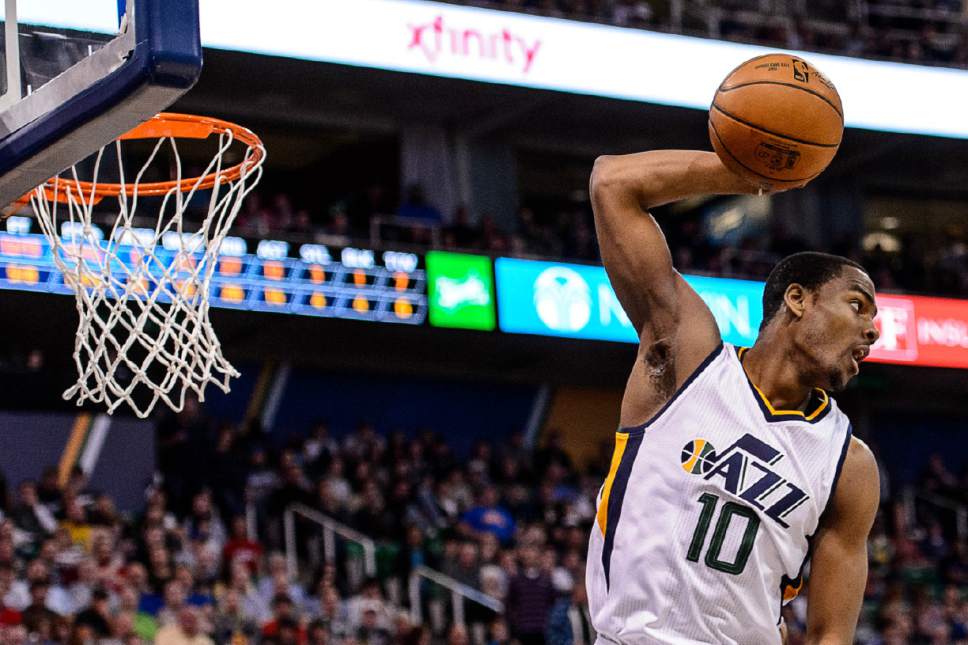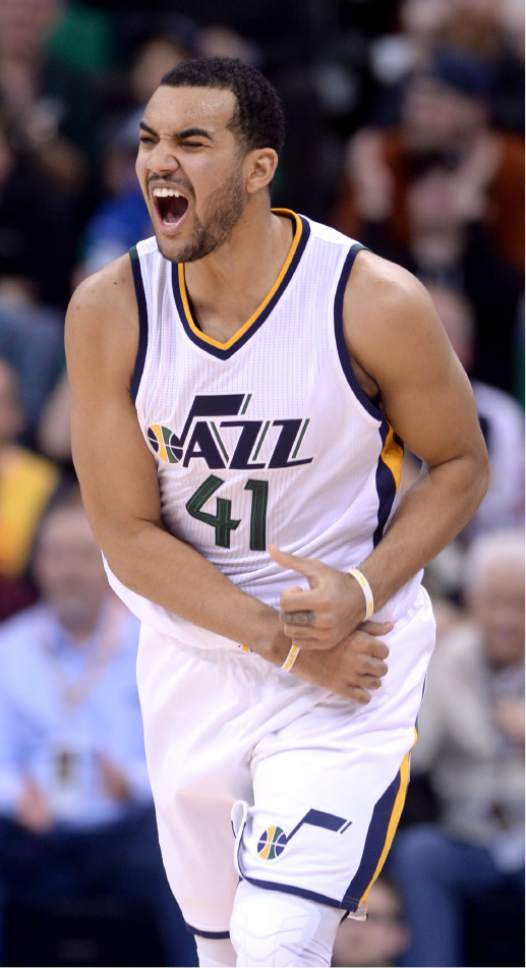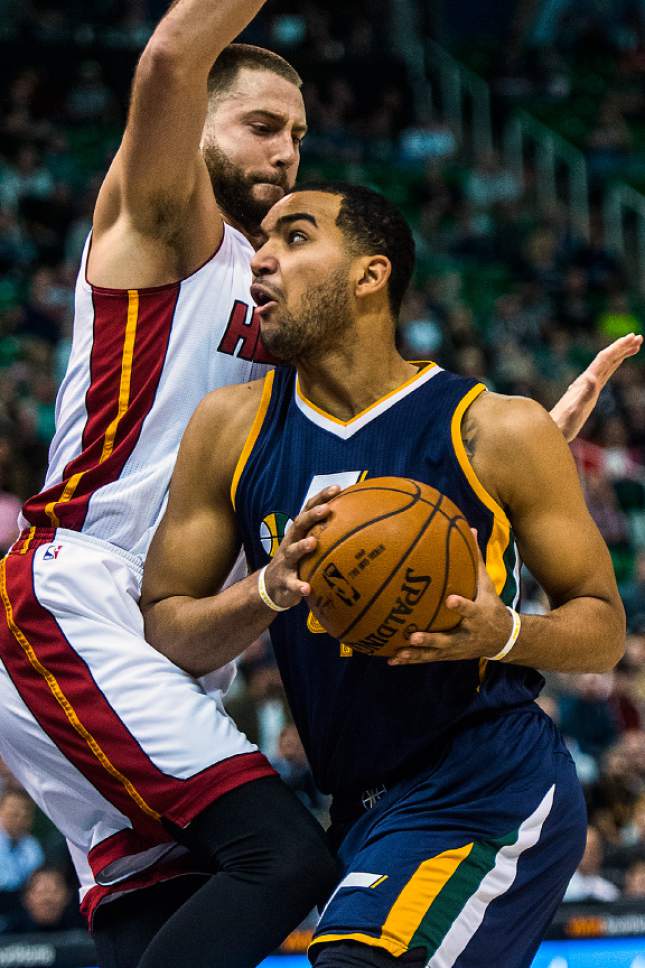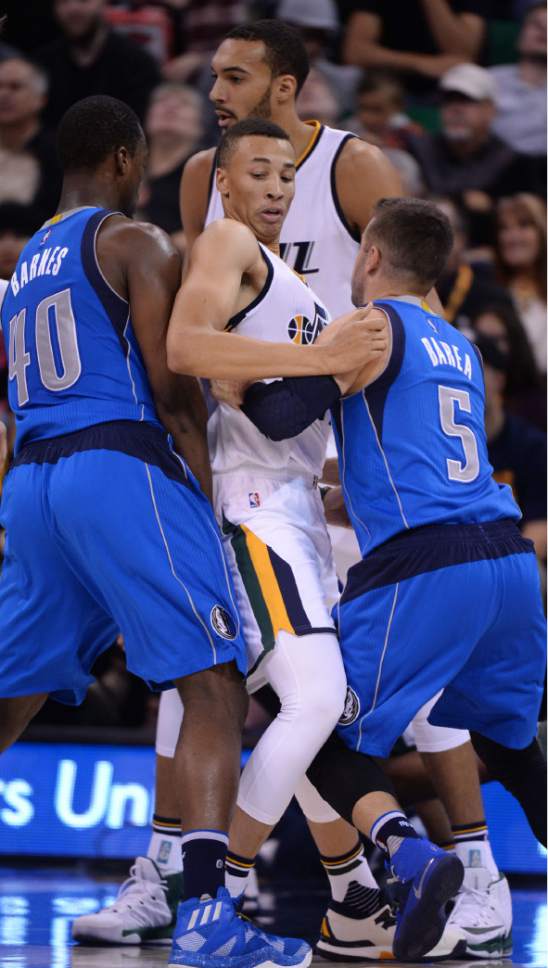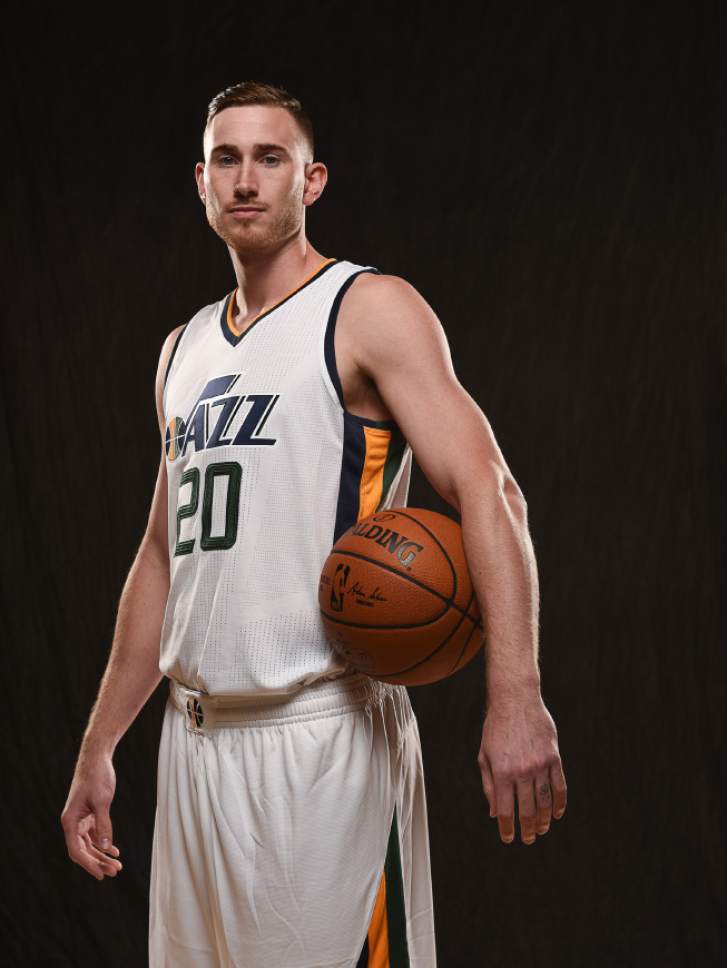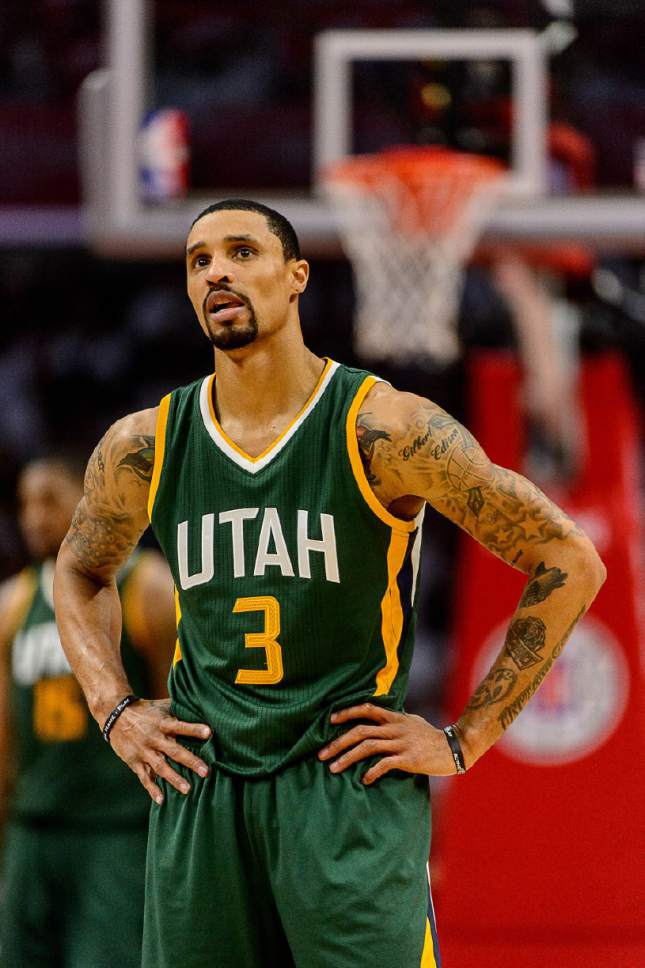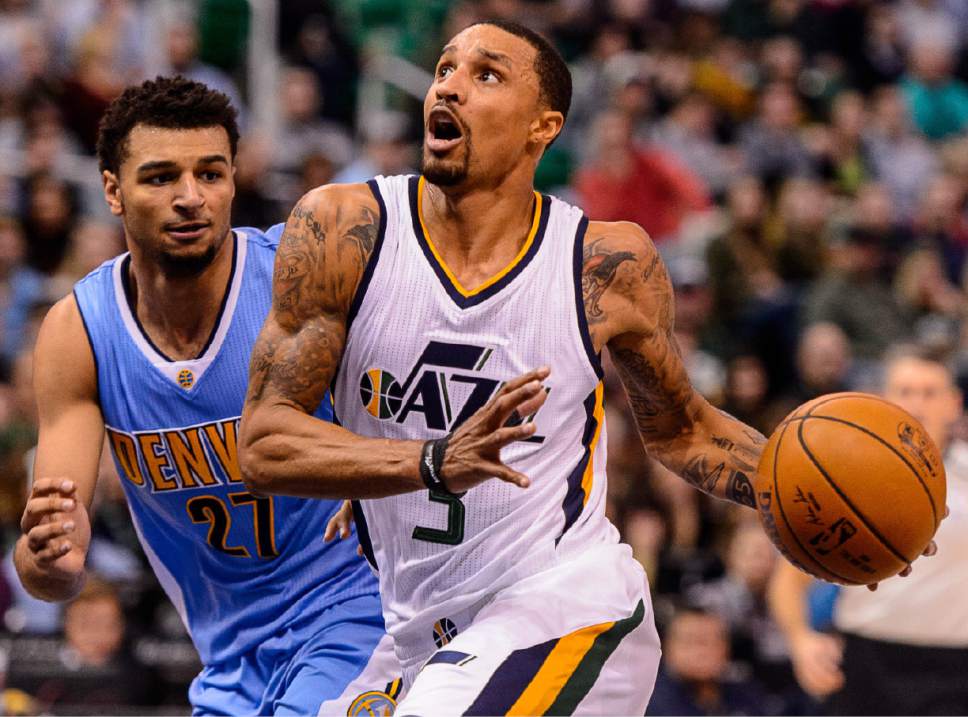This is an archived article that was published on sltrib.com in 2017, and information in the article may be outdated. It is provided only for personal research purposes and may not be reprinted.
Utah Jazz general manager Dennis Lindsey has completed his rebuild, turning the Jazz into one of the better teams in the NBA this season. Utah won 51 games during the regular season, and defeated the Los Angeles Clippers in the opening round of the playoffs before being swept by the Golden State Warriors in the Western Conference semifinals.
Now comes the next step for Lindsey, coach Quin Snyder and the rest of the organization: Take this playoff team and turn it into a championship contender.
However, history shows this step will be more difficult than the first. The bar has been raised after the franchise's first 50-win season in seven years. Title contention has to be the goal, and that's why this will be Utah's most important offseason in years.
How do the Jazz pull this off? What follows is a breakdown of what the Jazz do next, as well as a review of the season just completed:
Offseason issues
Sign Hayward • Utah's master plan gets torn to shreds if Hayward leaves the Jazz in free agency. He is the heart of the roster, one of the best small forwards in the NBA and a player entering his prime.
"I feel as if I can still improve," Hayward said.
That's scary if he can, because he's playing at an almost elite level right now. The Jazz have given Hayward plenty of reasons to stick around. The front office has built a young, talented roster around him, seasoned with key veterans. It extended the team's franchise center — Rudy Gobert — with a four-year deal. Fans have even begun a "Stayward" billboard campaign to entice him to stay. Hayward can potentially be one of the most revered Jazzmen in history if he sticks around. It won't be easy. He will have plenty of suitors, but the Jazz have the upper hand in this battle.
Figure out the point guard spot • George Hill could command max dollars on the free agent market. Do the Jazz want to pay that much, or will they explore their options and potentially throw money at someone like Jrue Holiday or even a Kyle Lowry? When Hill was on the floor this season, the Jazz played like a 55-win team, according to the metrics. Problem is, a sore toe limited Hill to 49 games, and kept him out of the majority of a Western Conference semifinal series against the Golden State Warriors. Hill has played 50 games just once in the past three seasons due to injuries, and at age 31 that raises some red flags about his durability.
Exum and Lyles' development • The progress of these young players has stalled. Dante Exum and Trey Lyles, both lottery picks with lots of raw talent each became afterthoughts, to varying degrees, during this season. Lyles fell out of the rotation completely by the end of the season, and Exum — who was coming off ACL surgery — played sporadically. With the Jazz having to commit so many dollars elsewhere, developing this kind of young talent will be important for sustainability. The San Antonio Spurs are experts at this. The Jazz will have to be good at it as well. This summer is huge for Exum and Lyles, who are rotation-type talents on cheap rookie contracts — which means a lot.
Favors and Burks' future • Derrick Favors and Alec Burks are still young, both have been Jazzmen for a while and both had disappointing seasons. Burks finished the season on the inactive list, and the issues with Favors are well-known. When both are healthy, the Jazz are immeasureably deeper. Favors is entering the final season of his contract, and early indications are he will want a sizeable raise as an unrestricted free agent. But he also needs to prove he's healthy and regain his explosiveness for that to happen. For Favors, next season will be critical.
Managing the cap • Utah has roughly $13 million in salary cap space that has to be used by July 1, or the Jazz will lose it per league rules. That could mean Utah will be an aggressive player on the trade market before the draft and free agency, especially if the team feels it needs to make another move or two to convince Hayward to stay. If Hill leaves, there should be plenty of cash to go out and get a replacement.
Season recap
Games 1-20
Best win • The Jazz went into San Antonio and beat the Spurs 106-91 on Nov. 1 to announce itself as a playoff team, four games into the season. The Jazz were 1-2 without an injured Gordon Hayward, and this win was critical for them, as George Hill scored 22 points and handed out seven assists against his old team.
Worst loss • A month after beating the Spurs, the Jazz lost 111-110 at home to a Miami Heat team playing without Dion Waiters and Josh Richardson. Goran Dragic torched the Jazz for 27 points, getting to the basket whenever he wanted. James Johnson scored 24 points, a season-high.
Games 21-40
Best win • Shooting guard Rodney Hood returned from a hamstring injury and scored 25 points, as the Jazz defeated division foe Oklahoma City 109-89 on Dec. 14. The game was noteworthy for the defense Utah played on Thunder star Russell Westbrook, who scored 27 points, but was held to 7 of 25 shooting from the field. Utah ran its record to 15-2 when leading at halftime.
Worst loss • Blowing a 20-point lead on your home floor is bad. Blowing a 20-point lead on your home floor to the Sacramento Kings is really, really bad. That's exactly what the Jazz did on Dec. 21, losing 94-93. Ty Lawson did the most damage for the Kings, scoring a season-high 19 points. After leading 62-42 in the third quarter, the wheels fell off for the Jazz.
Games 41-60
Best win • It was all Gordon Hayward on Jan. 10. The soon-to-be All-Star dropped 28 points in a 100-92 win over the defending NBA champion Cleveland Cavaliers. This game was noteworthy for the Jazz having a healthy starting lineup of George Hill, Rodney Hood, Gordon Hayward, Derrick Favors and Rudy Gobert for only the sixth time in 40 games to that point.
Worst loss • The Jazz were rolling in Dallas on Feb. 9, leading the Mavericks by 21 points midway through the third quarter and looking at a fifth consecutive win. But the Mavericks came back to beat the Jazz 112-105 in overtime. Harrison Barnes was the difference, scoring 31 points.
Games 61-Playoffs
Best win • Utah marched into Staples Center on April 30 and defeated the L.A. Clippers 104-91 in Game 7 of their opening round playoff series. It was not only the highlight of the season, but was the biggest Jazz victory in seven years. Utah got 26 points from Gordon Hayward, but it was Derrick Favors' 17 points and 11 rebounds that proved especially crucial. The Jazz led by as many as 21 points before coasting to the finish line.
Worst loss • The Minnesota Timberwolves came to Salt Lake on March 1 and handed the Jazz their worst home loss of the season. The final score was 107-80, and honestly, the game wasn't that close as the Wolves led by as many as 30 points.
Twitter: @tribjazz


